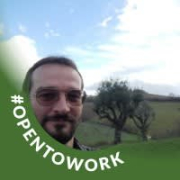Service and Support
Many users find Oracle Data Guard customer service commendable, often rating it 7 to 8 out of 10. Technical support shows mixed feedback, with some noting slow response times and basic initial assistance. Others highlight efficient service once issues escalate to higher levels. Users stress the importance of having paid support, highlighting dependency on Oracle's expertise for complex scenarios. Language barriers and regional differences occasionally affect the experience, yet users appreciate Oracle's extensive knowledge resources.
Deployment
Oracle Data Guard's initial setup varies in complexity. Some find it straightforward with proper documentation, while others view it as complex if expertise is lacking. Experienced DBAs often find deployment manageable, requiring only a few hours, but challenges arise with larger databases and network issues. Bandwidth, database size, and technical knowledge significantly impact setup time, ranging from minutes to days. External assistance and a clear understanding of Oracle concepts can ease complexities encountered during deployment.
Scalability
Oracle Data Guard demonstrates varied scalability experiences. Many find it highly scalable, enabling seamless expansion and support for numerous users. Several users acknowledge it as reliable and efficient for database replication and clustering. While some mention initial version challenges, enhancements in recent releases improve scalability considerably. Users rate it highly, citing its ability to manage large numbers of users effectively, though some face configuration difficulties.
Stability
Users express that Oracle Data Guard is reliable, performing well with primary databases. Network stability is crucial, as issues can halt synchronization. Usage requires continuous monitoring, particularly of archives. Despite occasional errors, Oracle Data Guard remains trustworthy. Its functionality is lauded, with many rating its stability highly, sometimes noting that big database performance assessments are pending. Configuration demands management, yet it successfully administers environments without downtime. Stability ratings range from five to eleven out of ten.



